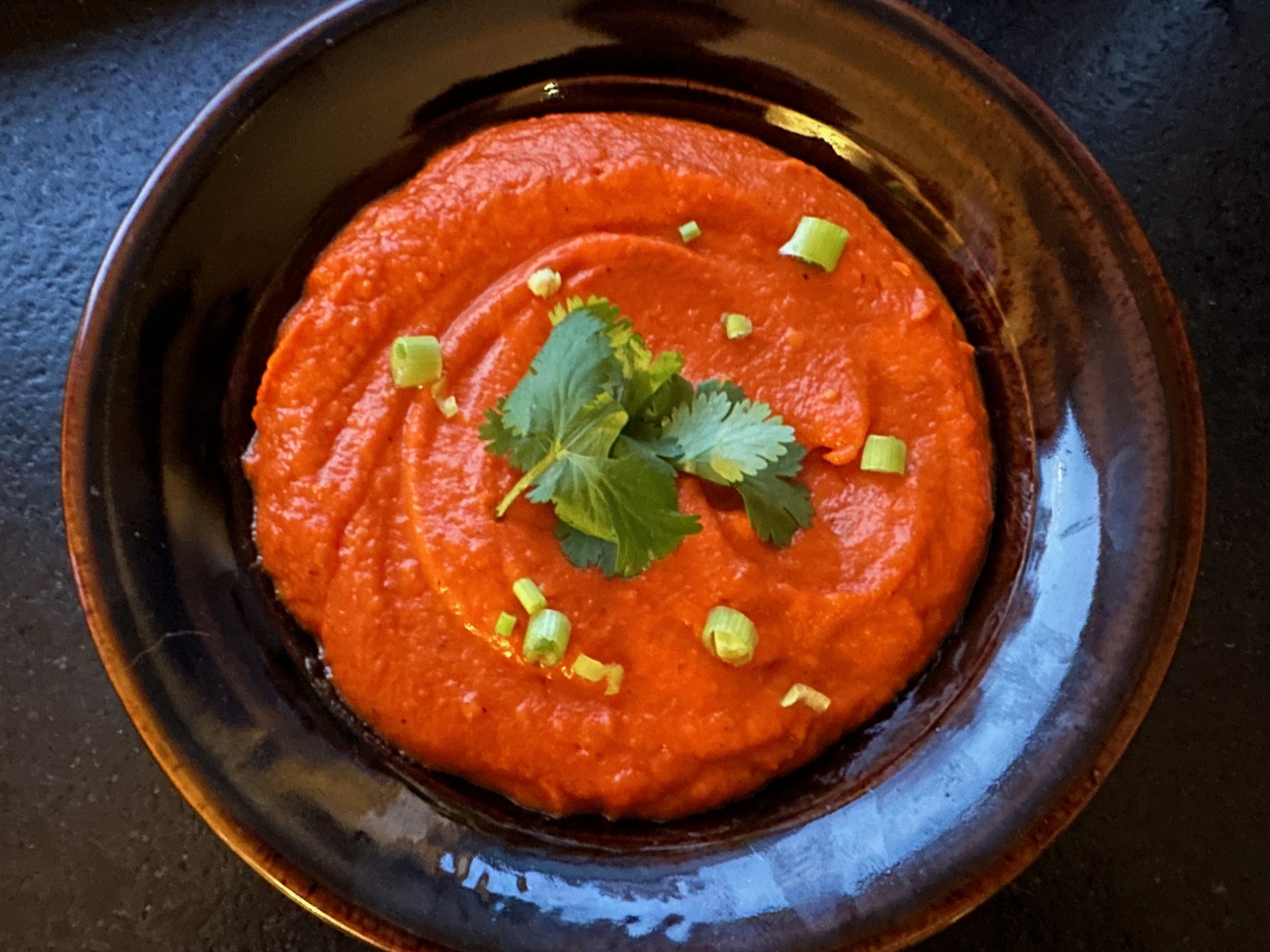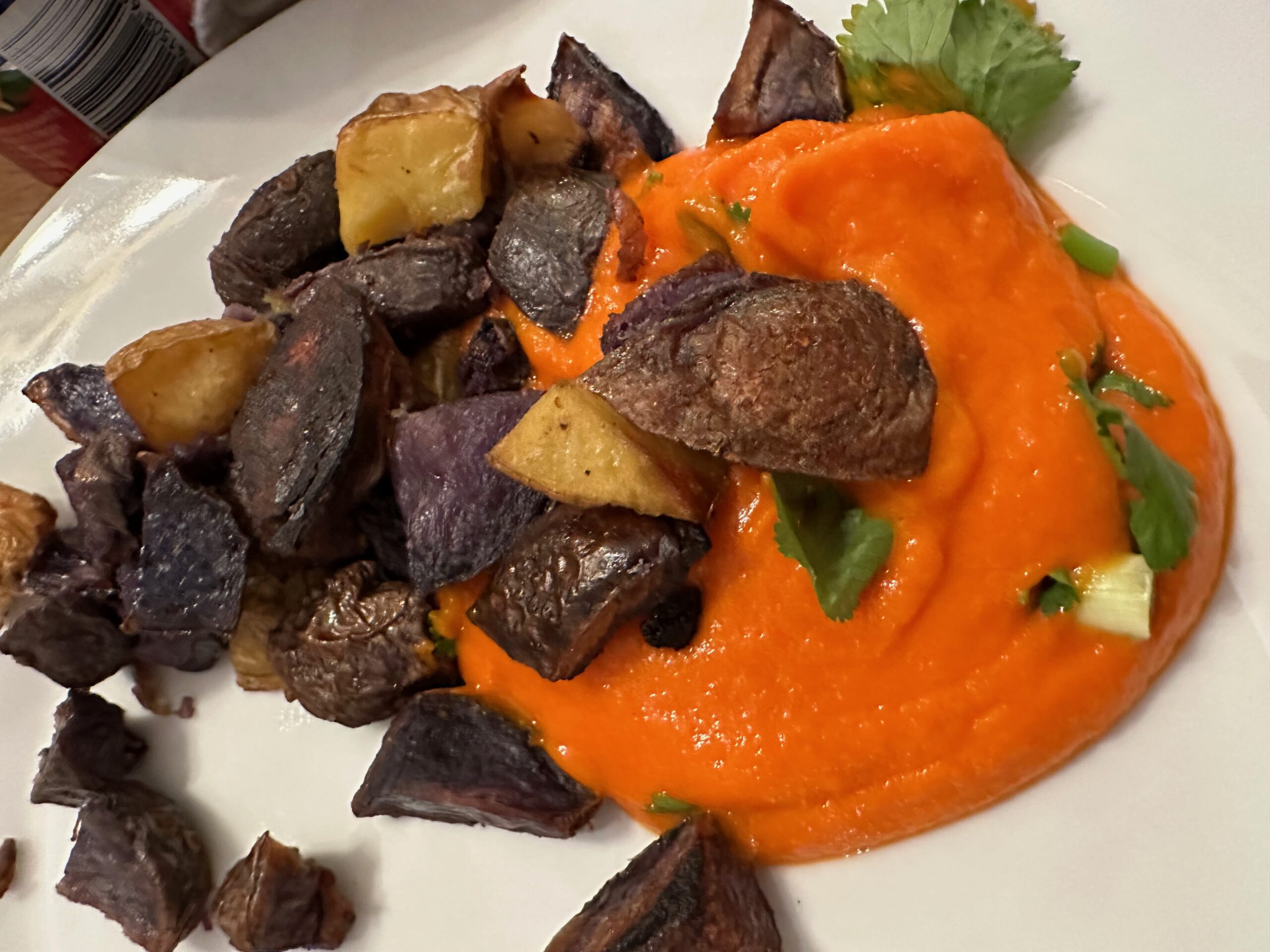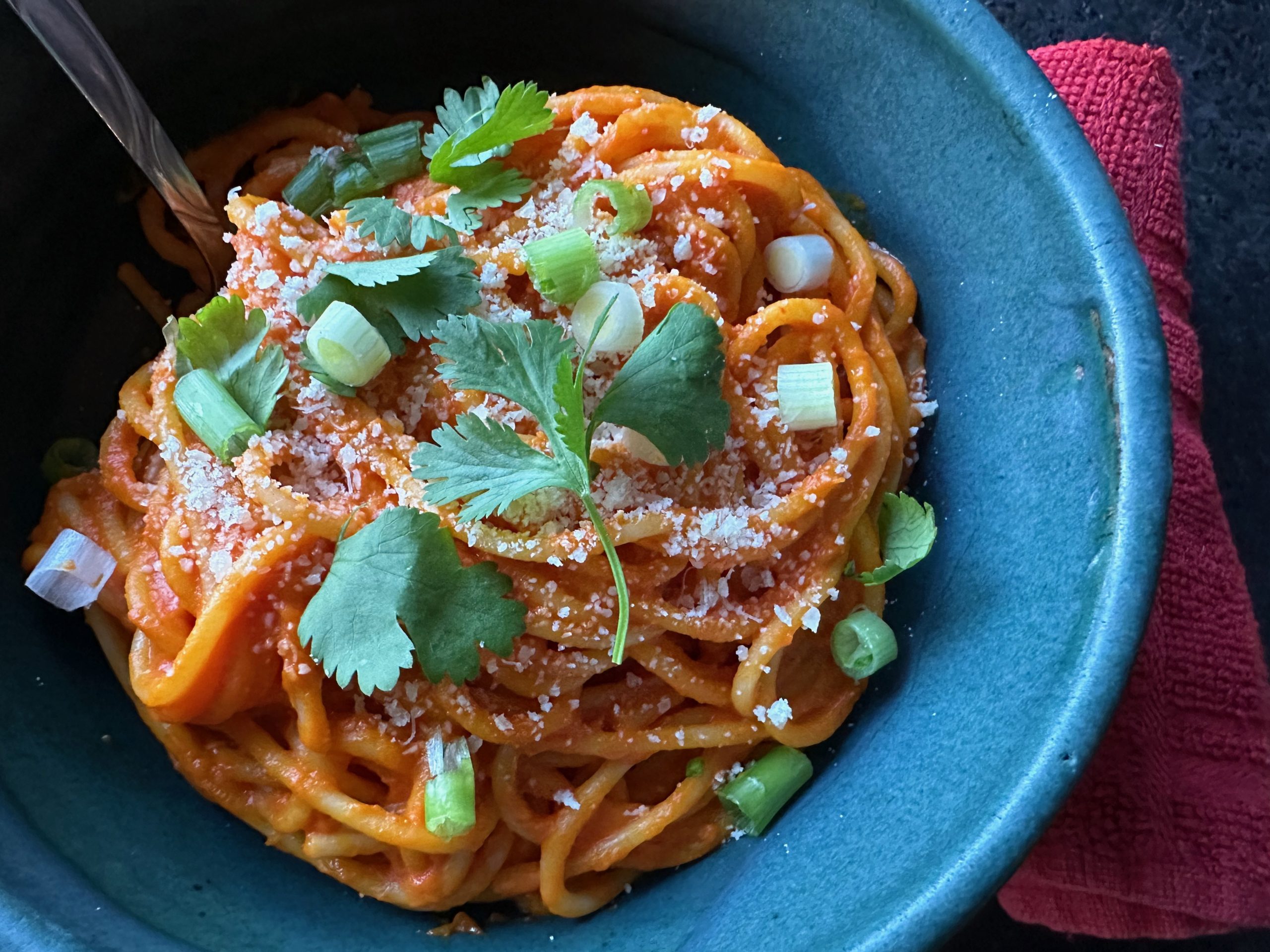An Eruption of Flavor
A year has come and gone since I happened upon a flame-orange paste from roasted squash and red peppers. I call it Magma, because it’s red and earthy, but I could also call it autumn mayonnaise, because it improves everything it touches. Whatever we name it, I am still grasping the implications. It’s a dip, a spread, a sauce, dressing and soup that’s as hot, cold, spicy, mild or seasoned as you wish. Magma will always warm you up, even when served cold, because the act of making this garden magma is simply too autumnal to leave you chilled. Plus, there is an oven involved.
To create magma, you simply roast sweet red peppers, along with a starchy squash like kabocha, and blend with olive oil, garlic and salt. The resulting puree is thick, and after some time will set up downright stiff thanks to the pectin in both squash a peppers. Pectin is a carbohydrate that jam makers use to thicken their product, and makes the magma as stiff as pudding.
Magma debuted at Thanksgiving dinner, passed around the table by glowing revelers who easily grasped its utility. The crimson emulsion was like a second gravy for the turkey. Its sweet pungency enhanced the stuffing, which sounds impossible but it’s true. The potatoes, dressed in red, became all the more delectable, and the Midwestern casserole became downright edible. After the meal there were so many leftovers that the hosts handed out full takeout containers to any departing guest who wanted, but kept the remaining Magma in a Tupperware of their own.
The day after Thanksgiving I made another batch, this time with some hot peppers, and spooned it on scrambled eggs. It looked and tasted like salsa, despite having no tomatoes. For dinner, I seasoned my magma with oregano and thyme, and served it upon pasta, where it was like a creamy marinara.
If all that weren’t glorious enough, the kids even like it. And if you’ve ever tried to get children to eat squash, you’d understand my excitement. Magma even made its way into the school lunch rotation, as a sandwich spread, packaged separately, or a dip for fresh cut vegetables.
The other day I made a batch of mom’s chicken soup, with onions and carrots and dill. Swerving from the protocols, I had added a hard piece of fine sourdough to the pot, and let it simmer until completely soft. I then ladled some broth and the soggy bread and a carrot or two into the blender, along with some fresh magma, and blended until thin and velvety smooth. I garnished with some dill, leftover from the soup, and served it warm. It was the flavor of luxury, and the feeling of fall.
For an even quicker fix of this autumn bisque, simply heat some chicken bouillon, broth or salted stock, and stir in the magma until it’s the right thickness. Simmer together and serve.
Magma Sauce
The quantities listed here will make about a quart of magma. If you want to make a different amount, use a ratio of one large pepper per pound of squash. As a soup it serves four. As a sauce, a few more.
A 6-lb kabocha squash (or similar starchy winter squash)
8 bell peppers, red or yellow (the flavor is good with both, but the color is better with red)
Optional: some hot peppers if you want more fire in the Magma
1 head of garlic to roast, plus a clove raw
4 tablespoons olive oil
1 teaspoon thyme or oregano
1 teaspoon salt; more to taste
Set the oven to 375. Cut the squash in half, scoop out the seeds, and lay the halves down on a baking pan. Cook until soft enough to feel softness when pushing from the outside, about 45 minutes. In a separate pan roast the peppers, turning once or twice so they blister on both sides. Remove the peppers after about 30 minutes, or when they are completely blistered and collapsed. Put the head of garlic into a small bakeable container, like a ½ pint mason jar, along with the olive oil, and bake for about 30 minutes.
Remove the ingredients when ready and allow to cool to a safe temperature to work with. Peel the blistered peppers as best you can – it’s OK if some bits of skin remain – and scrape out the seeds. Scoop out the squash seeds, then scoop the flesh out the skin. Gently peel or squeeze the roasted garlic to get red of the skins, and add the garlic and the oil to the blender, along with the squash flesh, pepper flesh, herbs and salt Puree. Season with more salt if necessary. Puree again.
This is the end of the recipe for magma, but the beginning of all of the things you will do with it.



